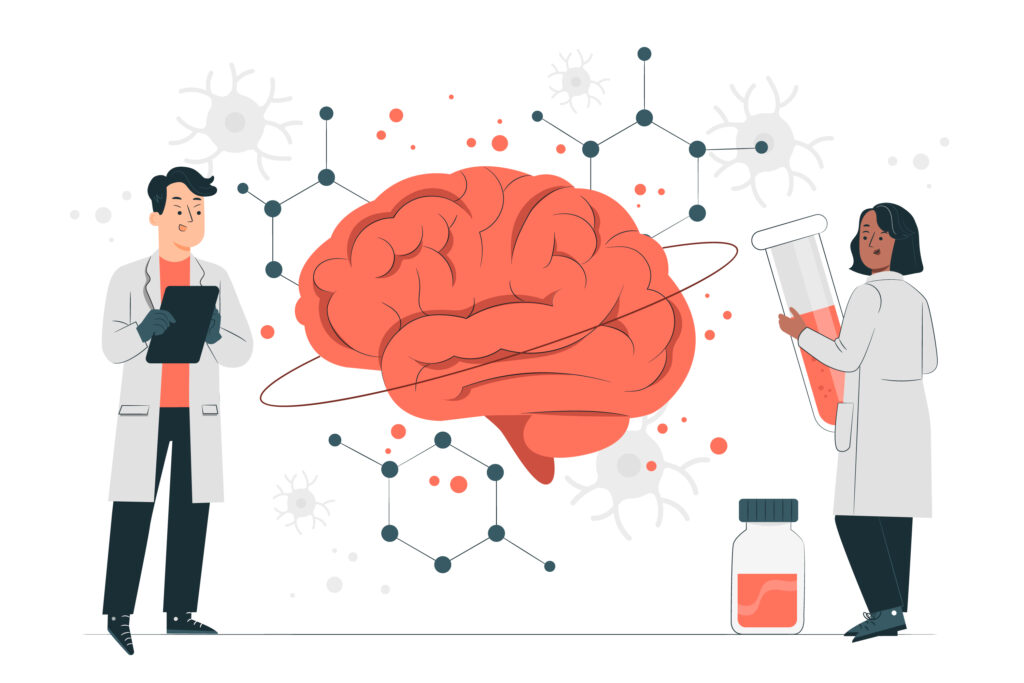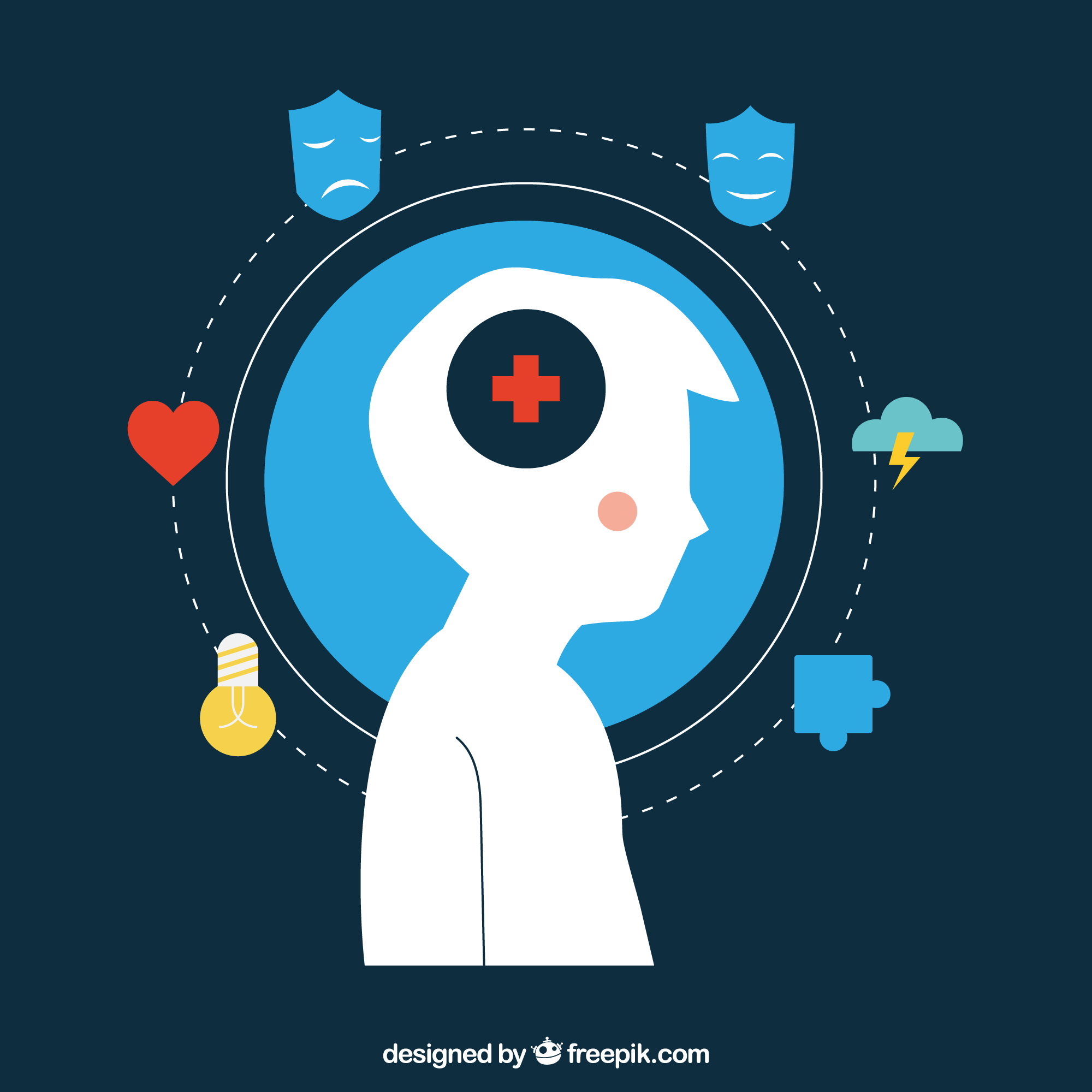Introduction
In the contemporary era of rapid progress and constant demands, prioritizing our holistic well-being has gained unprecedented significance. While we often focus on physical fitness and emotional well-being, one crucial aspect that shouldn’t be overlooked is intellectual health. Intellectual health refers to the well-being and optimal functioning of our intellectual capabilities, allowing us to think critically, solve problems, and continuously learn. In this blog post, we will explore the significance of intellectual health and provide practical tips to nurture it in our daily lives.

Section 1: Understanding Intellectual Health
Intellectual health is more than just being smart or knowledgeable; it encompasses a range of abilities and qualities that contribute to a well-rounded intellectual life. The components of intellectual health include:
- Critical Thinking Skills
Critical thinking enables us to analyze information, evaluate different perspectives, and make informed decisions. It involves questioning assumptions, recognizing biases, and seeking evidence to support our beliefs.
- Continuous Learning
Embracing a lifelong learning mindset is essential for intellectual health. Actively seeking new knowledge, exploring diverse subjects, and expanding our understanding of the world keep our minds sharp and engaged.
- Problem-Solving Abilities
Intellectual health empowers us with effective problem-solving skills. It involves identifying challenges, generating creative solutions, and implementing strategies to overcome obstacles in various aspects of life.
- Curiosity and Creativity
Maintaining intellectual health requires nurturing our innate curiosity and fostering creativity. Curiosity drives us to explore new ideas, ask questions, and seek out novel experiences. Creativity allows us to think outside the box and find innovative solutions.
Section 2: Benefits of Intellectual Health
Prioritizing intellectual health brings numerous advantages to our personal and professional lives. Some key benefits include:
- Improved Cognitive Function
Engaging in intellectual activities stimulates our brain and enhances cognitive abilities. It improves memory, attention span, and overall mental agility, allowing us to think more clearly and effectively.
- Enhanced Decision-Making Skills
Intellectual health equips us with the tools to make well-informed decisions. By analyzing information critically, weighing options, and considering long-term consequences, we can make choices that align with our goals and values.
- Increased Adaptability and Resilience
Having a strong intellectual foundation enables us to adapt to new situations and navigate challenges with resilience. We can apply our problem-solving skills and flexible thinking to overcome obstacles and embrace change.
- Expanded Knowledge and Personal Growth
Intellectual health fosters a thirst for knowledge and continuous growth. By actively seeking learning opportunities, exploring new subjects, and embracing intellectual challenges, we broaden our horizons and develop as individuals.

Section 3: Tips for Improving Intellectual Health
Now that we understand the importance of intellectual health, let’s explore some practical tips to enhance and nurture it:
- Engaging in Intellectual Activities
Reading books and articles: Make reading a regular habit and explore diverse topics that interest you.
Solving puzzles and brain games: Engage in activities that challenge your cognitive abilities and problem-solving skills.
Participating in debates or discussions: Engage in conversations that require critical thinking and provide opportunities to exchange ideas.
- Pursuing Lifelong Learning Opportunities
Enroll in courses or workshops: Explore subjects that intrigue you or develop new skills.
Attend seminars or webinars: Stay updated with the latest developments in your field of interest.
Seek out online resources: Utilize the vast amount of educational content available on the internet.
- Cultivating a Growth Mindset
Embrace the trials: Regard them as chances for personal development instead of mere hindrances.
Emphasize effort and perseverance: Understand that intelligence and abilities can be developed through dedication and hard work.
Learn from setbacks: See failures as learning experiences and use them to improve and adapt.
- Nurturing Curiosity and Exploring New Interests
Follow your curiosity: Allow yourself to pursue topics and activities that genuinely interest you.
Try new things: Step out of your comfort zone and explore new hobbies or areas of knowledge
Ask questions: Be curious and inquire about the world around you.
Section 4: Intellectual Health and Emotional Well-being
Intellectual health and emotional well-being are closely intertwined. Intellectual stimulation and engagement positively impact our mental health in several ways:
- Nurturing Curiosity and Exploring New Interests
Follow your curiosity: Allow yourself to pursue topics and activities that genuinely interest you.
Try new things: Step out of your comfort zone and explore new hobbies or areas of knowledge.
Ask questions: Be curious and inquire about the world around you.
Providing a sense of purpose: Engaging in intellectual activities gives us a sense of fulfillment and purpose, contributing to overall happiness.
Stimulating positive emotions: Learning, exploring, and solving problems activate the brain’s reward centers, releasing dopamine and fostering a positive mood.
Offering an outlet for self-expression: Intellectual pursuits provide an avenue for self-expression, allowing us to channel our thoughts, ideas, and emotions in a constructive manner.
To support emotional well-being through intellectual health:
Incorporate intellectual activities into self-care routines.
Give precedence to endeavors that resonate with your genuine interests and passions.
Seek intellectual stimulation as a means to unwind and recharge.

Section 5: Balancing Intellectual Health and Digital Overload
In today’s digital age, striking a balance between intellectual engagement and the potential pitfalls of excessive screen time is crucial. Consider the following strategies to manage digital overload:
Set boundaries: Establish designated screen-free times or areas in your daily routine.
Practice mindful technology use: Be conscious of your digital consumption and take regular breaks from screens.
Engage in offline intellectual activities: Prioritize reading physical books, engaging in face-to-face discussions, or pursuing hands-on hobbies.
By implementing these strategies, you can ensure that technology enhances your intellectual health rather than hinders it.
Section 6: Cultivating Intellectual Health in Daily Life
To make intellectual health a consistent part of your life, consider the following practices:
- Incorporating Intellectual Habits into Daily Routines
Dedicate time each day for intellectual activities, such as reading or learning.
Make use of commute or waiting time by listening to educational podcasts or audiobooks.
Set reminders or schedule specific periods for engaging in intellectual pursuits.
- Setting Realistic Goals for Personal Growth
Define clear goals related to intellectual development.
Divide overarching objectives into manageable and attainable milestones.
Celebrate progress and milestones along the way.
- Creating an Intellectual Support Network
Seek out like-minded individuals who share your intellectual interests.
Join book clubs, discussion groups, or online communities related to your areas of interest.
Participate in impactful dialogues and foster the exchange of ideas with fellow individuals.
- Embracing Lifelong Learning as a Mindset
Stay curious and maintain a thirst for knowledge throughout your life.
Embrace new challenges and opportunities for growth.
Approach learning with an open mind and a willingness to explore different perspectives.

Conclusion
In conclusion, intellectual health is a vital aspect of our overall well-being. By nurturing our critical thinking skills, continuously learning, and embracing intellectual challenges, we can reap the benefits of improved cognitive function, enhanced decision-making abilities, increased adaptability, and personal growth. It is essential to strike a balance between digital engagement and offline intellectual pursuits, ensuring that technology supports rather than overwhelms our intellectual health. By incorporating intellectual habits into our daily routines, setting realistic goals, and cultivating a supportive network, we can embark on a fulfilling journey of intellectual development. So, let’s prioritize our intellectual health and unlock the full potential of our minds.
FAQs
Q : 1. What is intellectual health?
A. Intellectual health refers to the well-being and optimal functioning of one’s intellectual capabilities, including critical thinking, problem-solving, and continuous learning.
Q : 2. How does intellectual health affect our overall well-being?
A. Intellectual health positively impacts our overall well-being by improving cognitive function, enhancing decision-making skills, increasing adaptability, and fostering personal growth.
Q : 3. What are some ways to improve intellectual health?
A. To improve intellectual health, engage in intellectual activities, pursue lifelong learning, cultivate a growth mindset, and nurture curiosity and exploration.
Q : 4. Can intellectual health benefit our emotional well-being?
A. Yes, intellectual stimulation and engagement contribute to positive emotional well-being by providing a sense of purpose, satisfaction, and personal growth.
Q : 5. How can we balance intellectual health and digital overload?
A. To balance intellectual health and digital overload, set boundaries, practice mindful technology use, and engage in offline intellectual activities.

